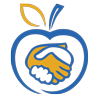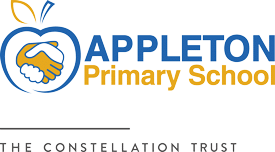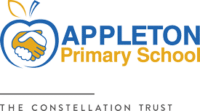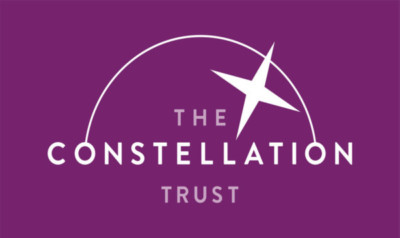PSHE – curriculum overview
Intent
Jigsaw at Appleton Primary is taught through 6 units which are designed to progress in sequences throughout the academic year.
Each Piece (lesson) has two Learning Intentions: one is based on specific PSHE learning (covering the non-statutory national framework for PSHE Education and the statutory Relationships and Health Education guidance, but enhanced to address children’s needs today); and one is based on emotional literacy and social skills development to enhance children’s emotional and mental health.
Jigsaw PSHE will support the development of the skills, attitudes, values and behaviour, which enable pupils to:
- Have a sense of purpose
- Value self and others
- Form relationships
- Make and act on informed decisions
- Communicate effectively
- Work with others
- Respond to challenge
- Be an active partner in their own learning
- Be active citizens within the local community
- Explore issues related to living in a democratic society
- Become healthy and fulfilled individuals
In Jigsaw, by the end of EYFS children will:
Begin to develop and form positive relationships. Show sensitivity towards the needs of others. Show self-confidence and awareness by trying new things and taking risks. Understand how to manage feelings and behaviour. Show and talk about your own emotions and those of others. Be able to differentiate between positive and negative behaviour and understand that negative behaviour has consequences.
By the end of Key Stage 1 children will:
Understand how my behaviours and choices affect others. Explain how we are all different and this makes us special. Express how I feel about succeeding in new challenges and how it feels working as a group. Understand the importance of healthy food. Recognise people who are important to me and how to resolve conflicts with my friends. Use the correct names for parts of the body and understand which parts of the body are private.
By the end of Key Stage 2 children will:
Understand why we have rules in our community, how we are given a voice and understand how our actions can affect others in our community. Explain the importance of accepting people for who they are, recognise bullying behaviours and how to help people make the right choice. Understand how to be resilient and the effect of having a positive attitude, recognise my goals and how to work with others to make the world a better place. Recognise how our metal health is as import as our physical health and respect and value our bodies. Explain how to stay safe with technology, describe different points of views and recognise when others are trying to gain control. Explain how bodies change as we grow including through puberty.
Implementation
Jigsaw is delivered through 6 Puzzles (half-term units of work) each with 6 Pieces (lessons): Autumn 1: Being Me In My World, Autumn 2: Celebrating Differences, Spring 1: Dreams and Goals Spring 2: Healthy Me, Summer 1: Relationships, Summer 2: Changing Me. Lesson objectives are structured and sequenced so that final outcomes are secure and meaningful. Children do not learn objectives in isolation but continue to embed these through carefully planned application of skills throughout the year.
All children have access to the Jigsaw curriculum with work being tailored appropriately for children with SEND. Inclusivity is part of Jigsaw’s philosophy and each piece is tailored to meet the needs of the children in their classes. To support this differentiation, many Jigsaw Pieces (lessons) suggest creative learning activities that allow children to choose the media with which they work and give them scope to work to their full potential. Children will learn through similar activities, with final outcomes modified to suit all needs. Children are then assessed
Impact
The impact of learning is measured through the use of Jigsaw Journals, class discussions and observations which demonstrate what has been understood. Post assessment and reflection activities demonstrate the progression of knowledge, skills and understanding. Where learning is not secure, additional learning takes place to address this.
Our PSHE programme enables children to develop positive and healthy relationships with themselves and their peers both now and in the future. The curriculum prepares children for the next stage in their education and ensures both they and staff value well-being, mental health and good citizenship, as well as preparing them for the adult world. The impact of our PSHE curriculum allows children to become confident learners who take ownership of their work and their actions. Children will also understand the physical aspects involved in RSE at an age appropriate level and will have positive body images. By teaching children to stay safe and healthy, and by building self-esteem, resilience and empathy, our PSHE programme can tackle barriers to learning, raise aspirations and improve the life chances of the most vulnerable and disadvantaged children.
Curriculum progression information:

“Big shout out to the teachers – doing a great job.”

“Resources have been really helpful and provided challenge.”

“You do an amazing job with our children.”

“Thank you from myself and my boys – we just wanted to show our appreciation.”

“Had a lovely morning visiting the school. It’s always a pleasure to meet with teachers who value the importance of the Arts in education.”

“It looks like the children are really enjoying themselves.”

“Very enthusiastic pupils with lots of energy and impeccable behaviour.”

“Fantastic school, students were brilliant. Thanks for having us.”

“Thank you to all teachers. Good teaching changes lives.”

“My son is sad to be leaving Appleton. He has loved his time at the school.”

“Thank you for your support at this time – it has really meant a lot.”

“Thank you for your efforts, it makes a huge difference to the kids!”

“Thanks as always for putting the school work onto the website for my children.”

“Thank you to everyone involved in producing that work as it is a perfect indicator of what levels and subjects to go with.”

“The children were an absolute delight, full of smiles and energy. Thank you for a lovely afternoon.”




